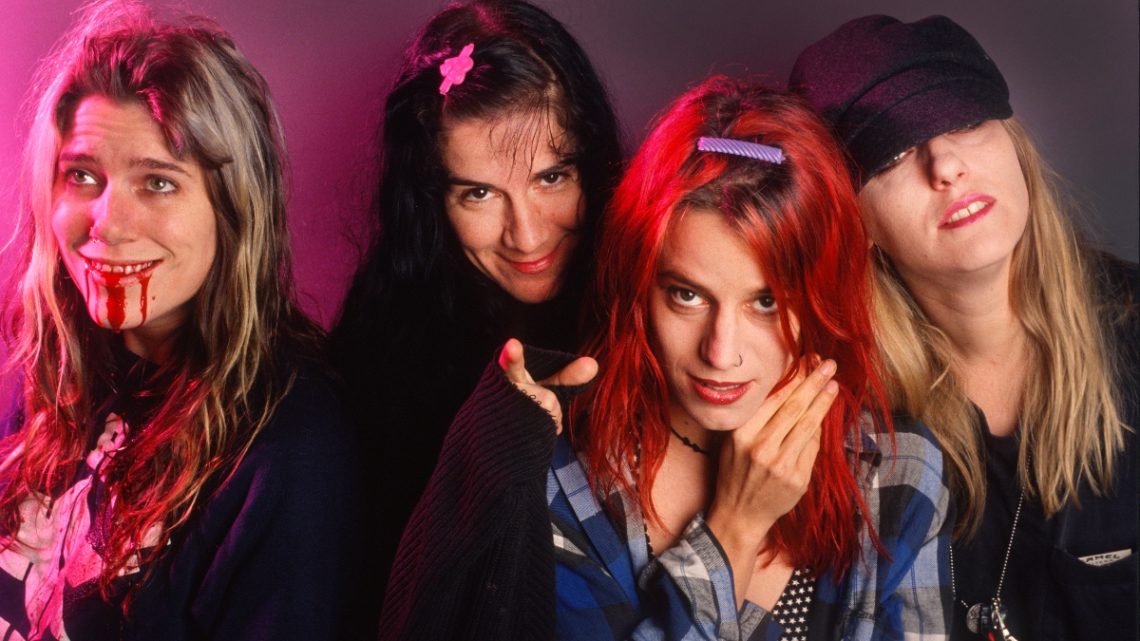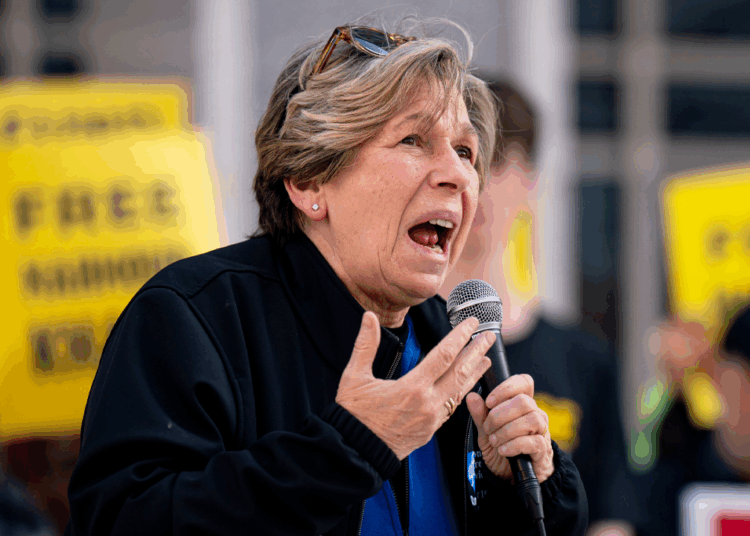Sure, anyone can listen to punk rock, there’s no gatekeeping here. But when punk rock hits for the girls, it really hits. Especially in the 70s, but also in the 80s when women were getting more hardcore, chaotic, and angry. Here are three punk women (and one entire band of punk women) who could teach us a thing or two.
Tina Bell
Tina Bell was not only the lead vocalist for the Seattle-based punk-adjacent band Bam Bam, but she is widely regarded as one of the originators of the grunge scene. She formed the band with her husband Tommy Martin, along with Scott Ledgerwood. Matt Cameron was briefly their drummer before joining Soundgarden and later Pearl Jam. But it was really Tina Bell who pulled Bam Bam together. She had a powerfully smoky voice even with her small frame, and the band retained local popularity even as she faced racially motivated attacks while on stage.
Bell left Bam Bam in 1990, after they failed to gain more traction, eventually leaving music altogether. Her legacy as a Black woman at the very nexus of Seattle grunge remains crucial in retrospect, but she deserved more recognition during her life. When people think of grunge they think Nirvana, Pearl Jam, Soundgarden, or Alice In Chains. Really, they should be thinking of Tina Bell.
Kira Roessler
Kira Roessler served as the bassist for the hardcore punk band Black Flag from 1983 until 1985. Roessler replaced Chuck Dukowski when Greg Ginn grew tired of Dukowski’s resistance to progression beyond hardcore punk. However, Ginn had been impressed with Roessler’s bass style, which was nimbler with more movement. Roessler joined the band, under one condition.
While she was studying applied engineering at UCLA, the band’s live shows had to be scheduled around her classes. She stayed in the band until touring wrapped on their 1985 album In My Head. Then, she graduated from UCLA in 1986. Her bass playing appeared on five Black Flag albums during her tenure, and she remains an impressive part of the band’s history. If not for her bass guitar abilities, than for her ability to commit to her college schedule while touring with a punk band in its prime.
L7
Unforgiving, aggressive, and chaotic, L7 formed in 1985 as an all-female punk band with members Donita Sparks, Suzi Gardner, and Jennifer Finch. In 1989, Demetra Plakas joined as well. While they formed in California, they spent time in Seattle, which lumped them in with the grunge scene. As such, they’re often considered among 90s grunge bands. With an all-female lineup, they often fall into the riot grrrl movement of that decade. But L7 has long maintained that they’re punk rockers first and foremost.
In 1991, L7 formed Rock For Choice in support of women’s rights and the pro-choice movement. As a concert series, Rock For Choice raised money toward legal expenses for victims of anti-abortion attacks and violence. There was a distinct DIY spirit to Rock For Choice, as the band created information kits for activists so they could hold their own concerts locally. In just two years, there had been 37 of these DIY concerts across the U.S., according to a report from the New York Times.
Vi Subversa
Vi Subversa proved that even a mother can be a hardcore punk. By the time Subversa was forming anarcho-punk band Poison Girls around 1976, she was 44 years old with two children. As vocalist, guitarist, and lyricist, Subversa created from a radical feminist point of view, addressing gender roles and sexuality. Her perspective was honest and raw, especially as a mother in early 80s Britain. She also wrote about political and social issues along the lines of contemporaries like Crass. Her influence is strong when considering her children, who went on to join punk bands of their own. Her son, Pete Fender (born Daniel Sansom), and daughter, Gem Stone (born Gemma Sansom), were founding members of Fatal Microbes and Rubella Ballet.
Photo by Gie Knaeps/Getty Images
The post 3 Legendary Women (and One Whole Band) from 1980s Punk Rock That Could Teach Musicians a Thing or Two Today appeared first on VICE.




